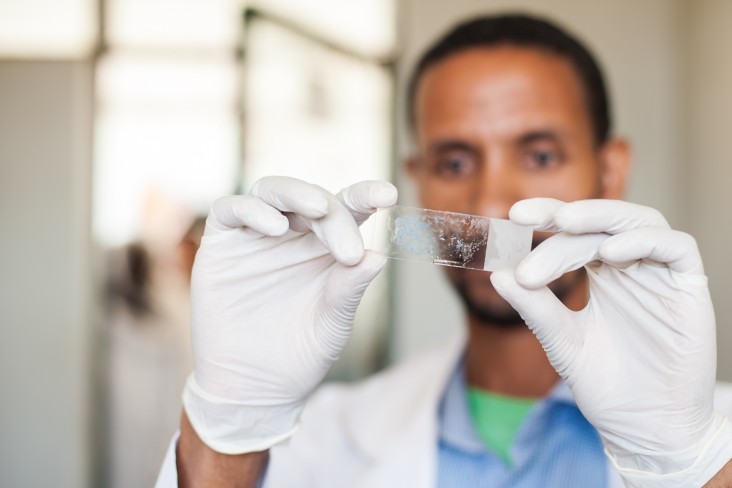
For Immediate Release
Addis Ababa, Ethiopia, June 28, 2016 – The U.S. Government, through the U.S Agency for International Development (USAID), in partnership with Ethiopia’s Ministry of Health and implementing partners KNCV Tuberculosis Foundation, Management Sciences for Health (MSH) and the World Health Organization (WHO), today celebrated the transition from the HEAL-TB activity to Challenge TB.
Working closely with the Ministry of Health and the Amhara and Oromia regional health bureaus, USAID’s HEAL TB activity has helped the ministry to screen more than 16 million people for TB since July 2011. While improving TB services at 1,000 health facilities was the original target, the activity enabled the ministry to expand to all 2,200 health facilities in the two regions.
Implemented by MSH, together with its sub-partners ALERT, PATH, and the Kenya Association for the Prevention of Tuberculosis and Lung Disease, HEAL-TB significantly strengthened the laboratory network for TB diagnosis and placed more than 250,000 people on treatment. Additionally, USAID created a model multi-drug resistant (MDR-TB) program, integrated TB and HIV services and expanded TB expertise at zonal and local levels.
Ethiopia remains among the world’s 30 high-burden TB countries, with close to 200,000 new cases estimated each year. Of these, only two-thirds are being identified for treatment. Ethiopia had approximately 1,300 new MDR-TB in 2014, with less than 45 percent treated. Supporting TB prevention and treatment in Ethiopia remains a priority for the U.S. Government.
USAID Mission Director Dennis Weller noted, “We could not have achieved these results had it not been for our strong partnership and collaboration with the Ministry of Health and regional health bureaus.” He also commended MSH for their tireless work to register these impressive results.
The new activity, Challenge TB, is expected to substantially contribute to the Government of Ethiopia’s goal of ending TB throughout the country. It will build upon HEAL-TB, and expand in scope to support the Ministry of Health in nearly all regions of Ethiopia.
In alignment with the Health Sector Transformation Plan, Challenge TB will provide decentralized technical assistance to the Government of Ethiopia at all levels to improve the quality of TB services, referral links, data and reporting. It will also emphasize access to TB services by key populations. KNCV Tuberculosis Foundation is the lead implementing partner, with MSH and WHO substantially involved in project management.
See also
Press Release HEAL TB and Challenge TB 6-28-16 [PDF, 74 kb]
Press Release HEAL TB and Challenge TB 6-28-16 Amharic [PDF, 277 kb]
USAID Remarks HEAL TB and Challenge TB 6-28-16 [PDF, 220 kb]







Comment
Make a general inquiry or suggest an improvement.